The Healing Power of Reading: How Books Boost Mental Health
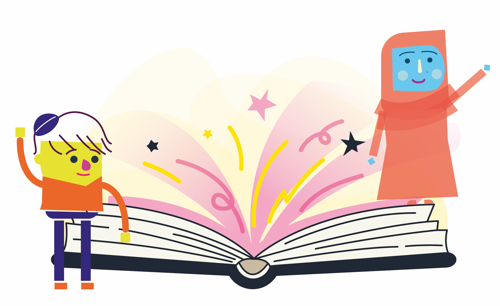
On the 23rd April 1995 UNESCO launched World Book Day as a worldwide celebration of books and reading. Over 30 years later World Book Day is now celebrated in over 100 countries around the globe encouraging young people to discover the pleasure of reading.
In today's fast-paced world, where stressors seem to be around every corner, finding comfort and peace of mind is crucial for maintaining good mental health.
At stormbreak we believe in the power of movement combined with mainstreaming conversations around mental health as crucial in supporting emotional wellbeing. Through movement and associated conversations around mental health, over time we can empower children with the skills and tools they need to be able to support their own wellbeing.
One way to build on the initial conversations, that are started during a stormbreak, is through the reading of books and quality literature. Why not use World Book Day as an opportunity to combine conversations around our 5 mental health concepts (resilience, self-care, relationships, self-worth and hope & optimism) and stories that address the same ideas.
This world book day why not try and read some of these books to support the mental health and emotional wellbeing of the children in your care.
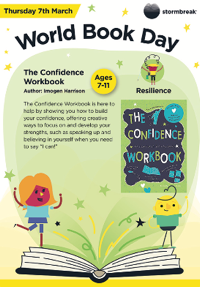 |
Click here for books about Resilience |
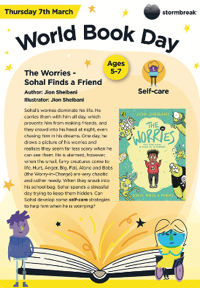 |
Click here for books about Self-care |
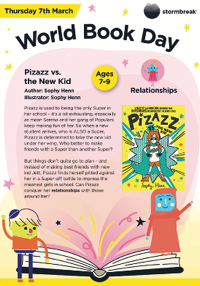 |
Click here for books about Relationships |
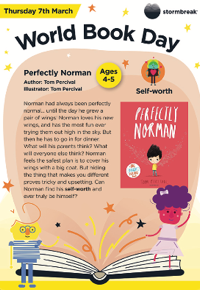 |
Click here for books about Self-worth |
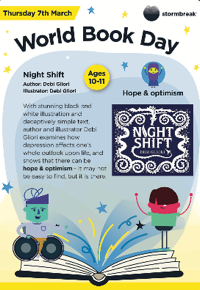 |
Click here for books about Hope & Optimism |
While there are numerous methods to alleviate stress and improve mental well-being,reading is an often-overlooked highly effective tool. Engaging with literature has been shown to have a profound impact on mental health, offering a sanctuary for the mind amidst the chaos of daily life. In 2018, the national literacy Trust surveyed nearly 50,000 children and young people and found that those most engaged with literacy are three times more likely to have higher levels of mental wellbeing than those who are not engaged.
Books have the unique power to transport readers to different worlds, times, and perspectives. This act of escapism allows individuals to temporarily detach from their own worries and concerns, offering a much-needed reprieve from the stresses of everyday life. Studies have shown that engaging in a captivating story can significantly reduce levels of stress and anxiety. The immersive nature of reading encourages mindfulness, as readers become fully absorbed in the narrative, leaving behind their own troubles for a while.
Through exposure to diverse characters and experiences, readers develop a deeper understanding of human emotions and behaviours. They are able to empathise with characters facing challenges similar to their own, as well as those from different walks of life. This ability to empathise with others can lead to greater compassion and tolerance in interpersonal relationships, ultimately enhancing overall emotional well-being. By witnessing characters navigate difficult circumstances and overcome obstacles, readers learn that they too can persevere in the face of adversity.
While the benefits of reading for mental health are clear, it's important to note that not all books are created equal in this regard. Just as individuals have unique preferences and tastes and different genres will resonate with different people.
Reading is much more than just a leisure activity – it is a powerful tool for promoting mental health and well-being. From providing an escape from reality to fostering empathy and resilience, literature has the ability to heal, inspire, and transform lives. By incorporating reading into the daily routine of the children in your lives, you can tap into its many benefits and cultivate a healthier mind for years to come. By combining reading with the benefits of mentally healthy movement that come through stormbreak, we can all look forward to a brighter tomorrow. .
Darryl Walsh - Director of School Operations
References
Clark & Teravainen-Goff. Mental wellbeing, reading and writing: How children and young people’s mental wellbeing is related to their reading and writing experiences (2018). National Literacy Trust.

